Inquest into Sarah Cafferkey’s murder begins in Melbourne
HER battered body was found dumped in a wheelie bin filled with concrete. Lawyers say the man who murdered Sarah Cafferkey should never have been released from jail.

HE IS now serving life behind bars, but lawyers say the man who murdered Sarah Cafferkey was excited by violence and should never have been released from jail.
Steven James Hunter fatally stabbed and bashed the 22-year-old at his Bacchus Marsh home, west of Melbourne, on November 10, 2012 — 11 days after completing parole for other violent crimes.
He then drove her body to another property at Point Cook, where he put it in a wheelie bin and poured concrete over it.
An inquest into her death heard on Tuesday that a Corrections Victoria computer tool did not take Hunter’s violent criminal history into account when deciding to grant him parole two years before Ms Cafferkey’s murder.
It also failed to take his aggressive, violent and sometimes manipulative behaviour into consideration, the Coroners Court of Victoria heard.
Corrections Victoria deputy commissioner of operations Roderick Wise said while the computer found Hunter to be a low risk of offending, the system was overwritten to assess him as a moderate risk so he could gain access to programs he otherwise would not receive.
During questioning before Coroner Ian Gray, Mr Wise said Hunter presented as the model parolee — never giving corrections staff any reason to think he was returning to old habits or becoming an increased risk to the community.
“He performed as required,” Mr Wise told the hearing.
“I think, generally speaking, Mr Hunter responded well to parole. He turned up and gave them no reason to believe he was a risk to the community.”
Fiona McLeod, a lawyer for Ms Cafferkey’s family, told the inquest there was evidence that during his parole period Hunter was using drugs, manipulated his caseworkers and was still excited by violence.
But Mr Wise said Hunter had told corrections staff he was living a “drug-free lifestyle” and never gave any indication he was using drugs.
In a report completed two weeks after his parole ended, clinical psychologist Jenni Johnstone highlighted several behavioural problems in Hunter, including hostility towards women.
Later, Mr Wise agreed Hunter could have been “putting up a facade” and that policy changes since Ms Cafferkey’s death could address similar instances.
Before she fell in with the wrong crowd and swapped her dreams for drugs, Ms Cafferkey had wanted to be a movie star.
The 22-year-old Melbourne woman had a strong conscience, studying social justice and wanting to help ice addicts herself.
But her mother had witnessed it all fall apart. Noelle Dickson knew her daughter had succumbed, repeatedly, to addiction and that she was spending time with a much older man she had been taking drugs with.
She now knows that man became Sarah’s killer, stabbing her 17 times and bashing her to death with a hammer, and she would later come to know he had killed before.
Sarah Cafferkey’s badly battered body was found outside a Point Cook home dumped in a wheelie bin, which the murderer filled with concrete to try to cover up his crime. Hunter had driven her dead body stuffed in a car boot from his Bacchus Marsh home, where he had continued to text her as she lay dead on his kitchen floor, another part of his cover plan.
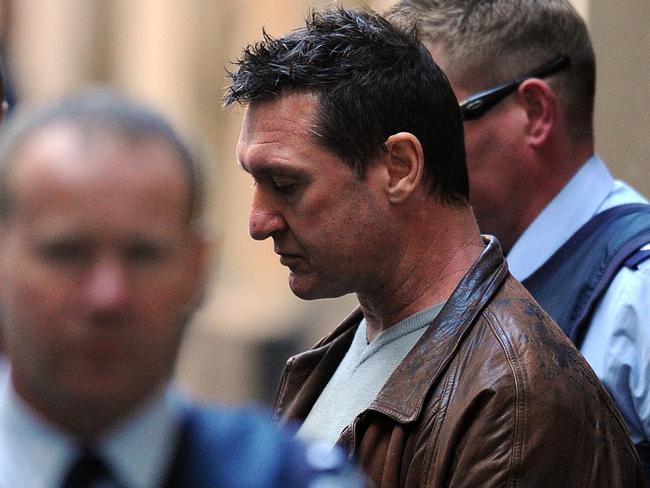
Ms Cafferkey’s family have come to accept some difficult truths, but many questions remain unanswered.
The coronial inquest will examine the possibility of other people being involved, and the fact that the killer had been on parole just days before Sarah’s brutal murder.
Sarah’s family had fought for an inquest and her mother says they’ll continue to fight “for the safety of our community”.
“We need to make sure that the government and the governing bodies are doing what they should be doing to keep us safe,” Ms Dickson said when it was decided in April the inquest would go ahead.
“If that means me fighting for that, I’ll keep fighting for it.”
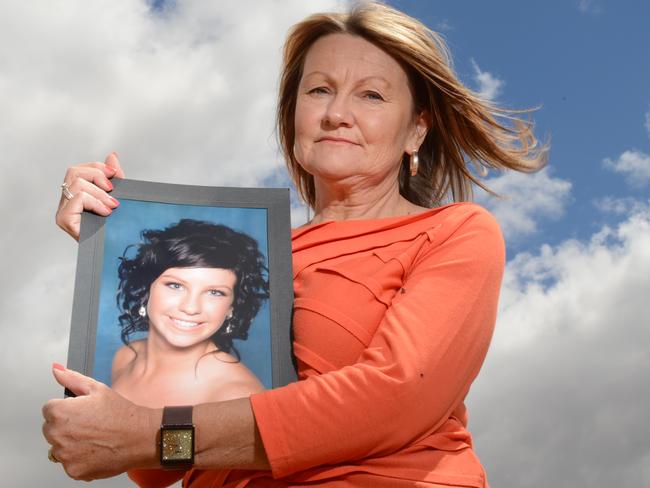
Hunter, 47 at the time of his last crime, was an ice dealer with a long rap sheet.
He served 13 years in prison for stabbing teenager Jacqueline Mathew to death in 1986. He was released on parole over that murder and his parole period expired just nine days before he killed again.
Between these two fatal crimes, the Melbourne man reoffended repeatedly. He escaped from prison, kidnapped, dealt drugs and was jailed a number of times for driving offences and drug trafficking among other crimes, all while on parole.
Ms Cafferkey’s mother claimed there had been “a systematic problem and faults of communication between Victoria Police, Corrections and Parole Board” contributing to her daughter’s killer being free to take another life.
When it was decided Ms Cafferkey’s murder would be the subject of an inquest, the same judge decided, at the request of her family, that murdered Melbourne woman Jill Meagher’s would not.
Adrian Ernest Bailey had been on parole when he raped and murdered the ABC employee.
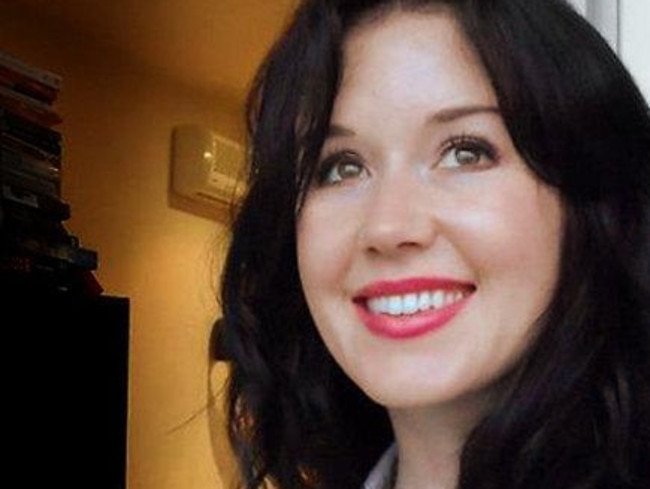
As an inquest into Ms Meagher’s death would not take place, the Cafferkey family’s lawyer said an inquest into Sarah’s death would provide the opportunity to explore issues surrounding the parole of violent offenders.
The two women’s murders led to a scathing review of the parole system by High Court Judge Ian Callinan, and the debate around parole conditions has again blown up as it has been revealed the killer of another innocent Melbourne woman was on bail and would have been in jail at the time had his sentence not been cut short.
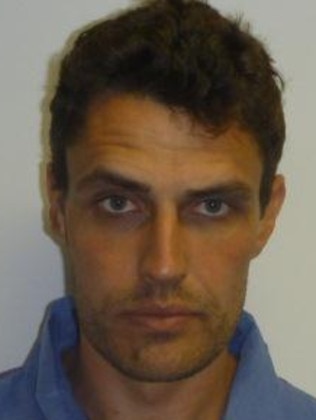
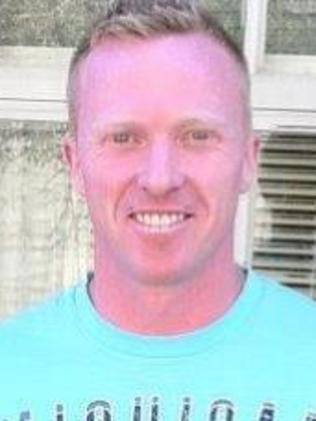
Sean Christian Price was on bail when he fatally stabbed 17-year-old schoolgirl Masa Vukotic 49 times and raped another woman.
And had he not appealed a 2013 jail sentence, he would have been in jail on March 17 when he randomly stabbed Ms Vukotic to death in Doncaster Park in Melbourne.
The 31-year-old had been sentenced to three years in jail with a non-parole period of two years after causing more than $40,000 in damage at the Corella Place sex offenders facility after being told he couldn’t use the gym.
But a judge cut the sentence to 10 months on appeal, after considering a psychological report and his guilty plea.
If Price had served his maximum three-year sentence, he would not have been free to murder Ms Vukotic.
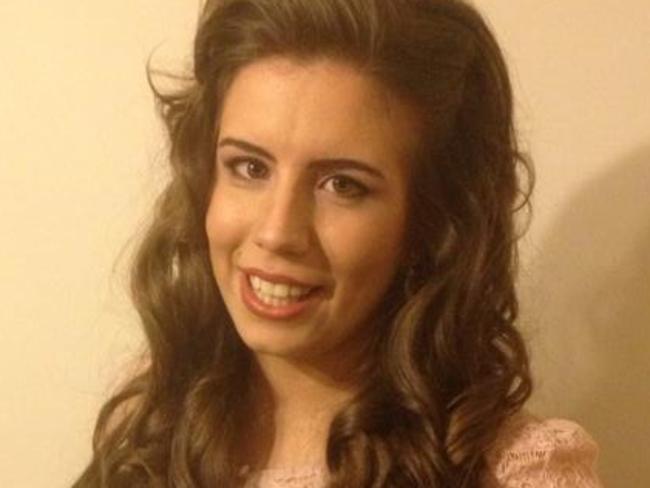
There were similarities between the three women’s deaths — each was killed by men recently released from jail and whose family members say should have been more closely monitored.
As the inquest into Sarah Cafferkey’s death has now begun, at least one family is closer to having the injustice addressed.
The hearing will continue on Wednesday with Ms Johnstone expected to take the stand.
— With AAP



